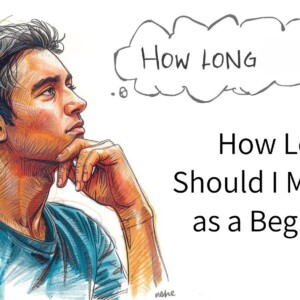
Do I Have to Be Buddhist to Practice Zen? A Beginner’s Guide to Inclusive Practice
If you’re new to meditation or spiritual practice, you may find yourself asking:
“Do I have to be Buddhist to practice Zen?”
The short answer is no—you don’t. While Zen has deep roots in Buddhism, its practice is open to anyone seeking clarity, stillness, and mindful presence.
In this article, we’ll explore what Zen really is, how it relates to Buddhism, and why people of all backgrounds can benefit from Zen principles—without needing to adopt a specific religion.
Understanding Zen: More Than a Religion
Zen is a school of Mahayana Buddhism that emphasizes direct experience over doctrine. Its core practice, Zazen (seated meditation), is not about belief, but about awareness and presence.
“Zen is not some kind of excitement, but concentration on our usual everyday routine.” — Shunryu Suzuki
Rather than focusing on rituals or theological concepts, Zen encourages you to sit, breathe, and meet each moment as it is.
You Don’t Need to Be Buddhist to Sit in Stillness
The essence of Zen can be found in:
-
Watching your breath
-
Walking with awareness
-
Drinking tea slowly
-
Listening deeply
-
Letting go of ego and expectation
None of these require religious affiliation. They’re human practices, rooted in direct observation and mindful living.
Zen as a Practice, Not a Belief System
One of the most freeing aspects of Zen is its non-dogmatic nature. Zen teachers often discourage rigid thinking, including attachment to identity—even spiritual identity.
“If you meet the Buddha on the road, kill him.” — Zen koan
This provocative phrase reminds us not to cling—even to Buddhism itself. Zen points beyond labels toward direct, lived experience.
Why People of All Backgrounds Practice Zen
Zen is practiced by:
-
Christians seeking contemplative silence
-
Atheists exploring mindfulness
-
Muslims finding calm through breath
-
Jews using Zen principles to enhance focus and presence
-
Spiritual seekers of no tradition, simply sitting with life as it is
You don’t need to change your faith—or have one at all—to benefit from Zen.
How to Begin Practicing Zen Without Being Buddhist
Here’s how you can get started, no matter your background:
-
Start with Zazen: Sit in silence for 5–10 minutes a day. Focus on the breath. Observe thoughts without judgment.
-
Practice mindfulness in daily tasks: Walk slowly. Eat without screens. Listen deeply.
-
Read Zen teachings for inspiration: Writings by Dogen, Thich Nhat Hanh, or Shunryu Suzuki offer accessible insights.
-
Let the practice shape you: You don’t need to label yourself. Just sit and see what arises.
Zen Values That Transcend Religion
Zen invites you to live with:
-
Simplicity
-
Stillness
-
Compassion
-
Awareness
-
Openness
These are not exclusive to Buddhism—they’re universally human qualities that can enrich any life, regardless of belief.
Final Thought: Zen Belongs to the Present, Not a Label
So, do you have to be Buddhist to practice Zen?
Absolutely not.
Zen is not about adopting a new identity. It’s about letting go of identities, resting in the breath, and meeting life directly. Whether you’re religious, spiritual, secular, or just curious, Zen welcomes you.
Because in the end, Zen isn’t about becoming something else.
It’s about becoming fully present—just as you are.
🌿 Want to go deeper into Zen and mindful living?
Explore ZEN for LIFE — a gentle guide to bringing presence, simplicity, and calm into your everyday routine.
Now available on Kindle.
#ZENforLIFE #MindfulLiving #EverydayZen










この記事へのコメントはありません。